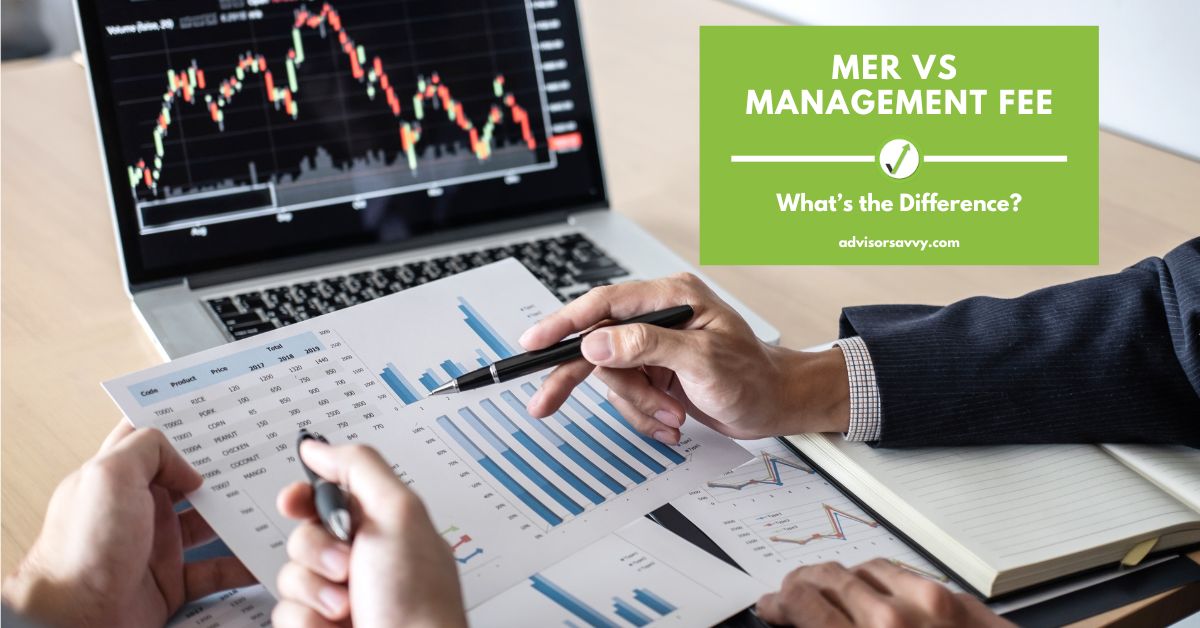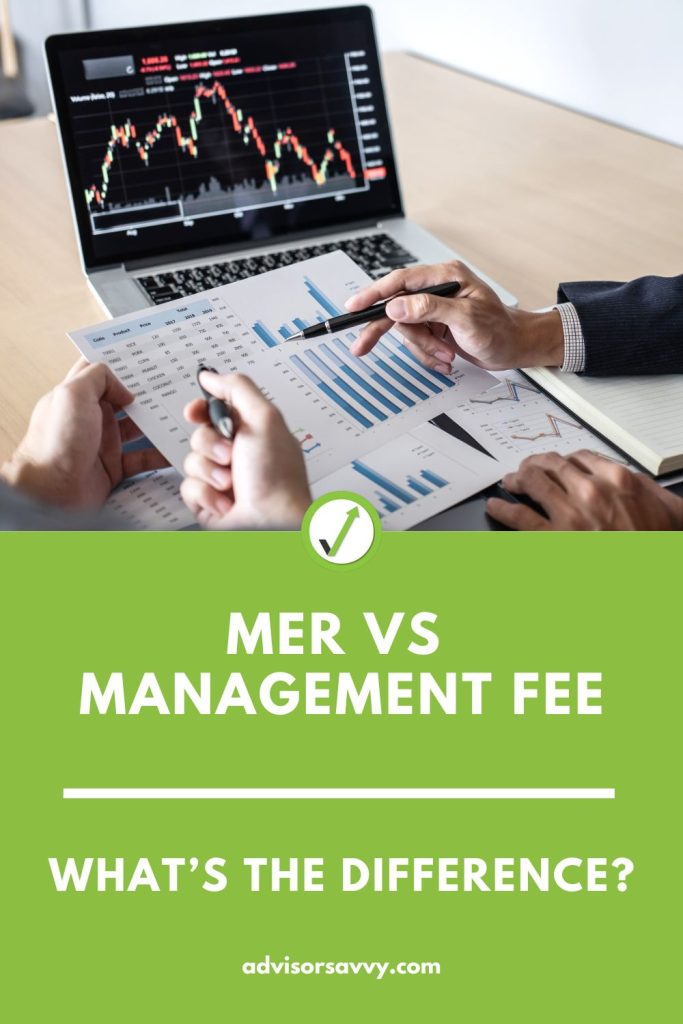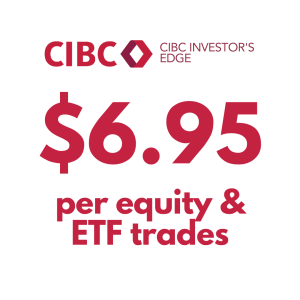
You have big hopes for that new mutual fund. A hefty $500 per month should turn into a 5% annual return until retirement, if the market performs accordingly. But something’s eating into your return: those pesky fees. Unfortunately, that’s just part of every investment fund. If you read the fine print, you’ll notice a few categories of fees that you can’t wrap your head around. The most prominent two on the list? MER, or management expense ratio, and management fees. A solid financial advisor will walk through these fees with you so there aren’t any misunderstandings. You can find one on our highly rated and fully vetted roster. But for now, what’s the difference between MER vs management fee? And how do you avoid paying too many fees on investments? After all, your goal is to make money, not spend your profits. We’ll cover what each one means and what they mean for your investment with this guide. Keep reading to learn more!

Table of contents
MER vs Management Fee: What does each mean?
Let’s start with some basic definitions. While both terms have the word “management” in them, they’re not quite the same. A MER vs management fee can be found below.
CIBC Investor’s Line Offer
Up to $6.95 per online stock or ETF trade. Plus, there’s no minimum account balance.
What is a Management Fee?
A management fee (also known more formally as an investment management fee) is what an investor pays a portfolio manager or company to essentially run the fund. For example, investing in a mutual fund with Desjardins isn’t free. The financial giant still needs to pay all the portfolio managers on their payroll and they do it in part with those management fees. After all, a mutual fund doesn’t earn money by itself!
Investments like mutual funds usually have percentage-based management fee, around 1% or 2%. But management fees are just one component of management expense ratios (MERs).
What is a Management Expense Ratio (MER)?
A management expense ratio encompasses the total cost of your investment, usually a mutual fund or exchange-traded fund (ETF). The total cost includes the management fee discussed above, as well as trailing commissions paid to sell the fund, bookkeeping, compliance, marketing, trading costs, and applicable taxes.
Remember, a brand new investment fund won’t have a MER because there hasn’t been any action or history for those cost-based actions to actually take place. You’ll be able to see the MER of your mutual fund or investment after a year. This allows management to accurately project what the MER is based on historical expenditures.
Related Reading: Commission Fees in Canada: A Complete Guide
How much should you pay for investment management fees?
Your total cost for your investment, in other words the MER, shouldn’t total more than 2% of your full investment. Ideally, you want something closer to 1%. Remember, that percentage isn’t just a percentage of what you put into the fund. It represents the percentage of your entire portfolio. The lower the fees are, the greater your profits will be and the quicker you can work towards goals, like buying a house or saving for retirement.
CIBC Investor’s Line Offer
Up to $6.95 per online stock or ETF trade. Plus, there’s no minimum account balance.
What is a reasonable management fee for mutual funds?
A reasonable management fee for mutual funds is anywhere from 1% to 2%. Canada has some of the highest MERs in the world, though you can also find cheaper fees for index funds, usually closer to 1%. Alternatively, you might consider exploring investment options outside of Canada that have lower management fees.
Keep in mind that percentage-based displays of management fees and MERs could be tricky to visualize. That’s why we always recommend that you ask for a dollar-amount example before you decide to invest.
Is paying the MER worth it?
Yes, paying the MER is worth it because it handles all the investment decisions and tasks that you’d otherwise have to handle solo. In essence, you’re paying a fee for someone else to manage your money. If you’re not skilled in finance, paying a MER is definitely worth it, especially if you want your money to grow and you don’t want to make expensive mistakes on your own.
Let’s say you’re a graphic designer, an insurance broker, or a restaurant owner; it’s fair to say investments aren’t really your area of expertise, right? Of course, research is your friend; however, you won’t actually have the expertise to confidently reallocate funds according to market performance and financial goals each year. That’s why mutual funds have fund managers and investment portfolios have portfolio managers. The MER covers the cost of all the consulting, management, and expertise needed to help your investments perform correctly. Sure, you can take a stab at it on your own, but you might make some costly errors in the process. Paying a MER means you’re paying for someone else to make wise decisions for you.
Still, that doesn’t mean you have to blindly pay for anything and everything. Always ask your financial advisor or portfolio manager about any details that aren’t abundantly clear to you regarding MER vs management fees. You might also consider looking at testimonials from past investors and clients, as well as evidence of strong-performing portfolios managed by the same firm or person.
How can I reduce my MER fees?
There are only two real ways to reduce your MER fees: asking for a reduction, or researching investment options with lower fees. The former won’t always get you a favorable answer, but it doesn’t hurt to ask. The worst they will say is they can’t bring their MER fees down any lower. You might get away with a fee reduction, especially if you plan to invest a lot of money into a particular fund.
What is the average MER for Canadian mutual funds?
The average MER for Canadian mutual funds is 2%. However, index funds are a form of mutual funds with cheaper management fees, often totaling 1%.
Yes, management expense ratios are crazy high in Canada! You might want to consider foreign investment options that have cheaper MERs if these fees are too high for your taste. Perhaps in Europe or the United States.
Related Reading: Best Dividend ETFs in Canada for 2023
Why does my fund list both a MER and management fee?
Remember, the management fee is always a component of the MER, they’re interconnected. Investment firms tend to list both of them in the fine print so that you can see exactly how much of the MER is going toward the actual management of the fund — aka to the portfolio manager. Then, you can back out the excess which is for other overhead expenses of the firm.
CIBC Investor’s Line Offer
Up to $6.95 per online stock or ETF trade. Plus, there’s no minimum account balance.
MER vs Management Fee: Knowing the Difference
MER vs management fee vs all the other types of costs you’ll incur on your financial journey can be a handful to remember. But it’s always helpful to walk through all fees with your financial advisor so that you know exactly where your money is going and can make informed decisions about where and with whom you invest. In turn, this will help your portfolio grow because you’ll understand what you’re spending on and why it’s benefiting your finances in the long run.
If you’re interested in a mutual fund or any other investment, you don’t have to make any financial decisions solo. Why not enlist support from one of our highly rated, certified financial advisors? We’ve spent years curating our roster of financial advisor partners to pair only the best of them with Canadian investors like yourself. Ready to invest and work toward financial security? Find your financial advisor today!
Read More: How to Invest in Mutual Funds in Canada

